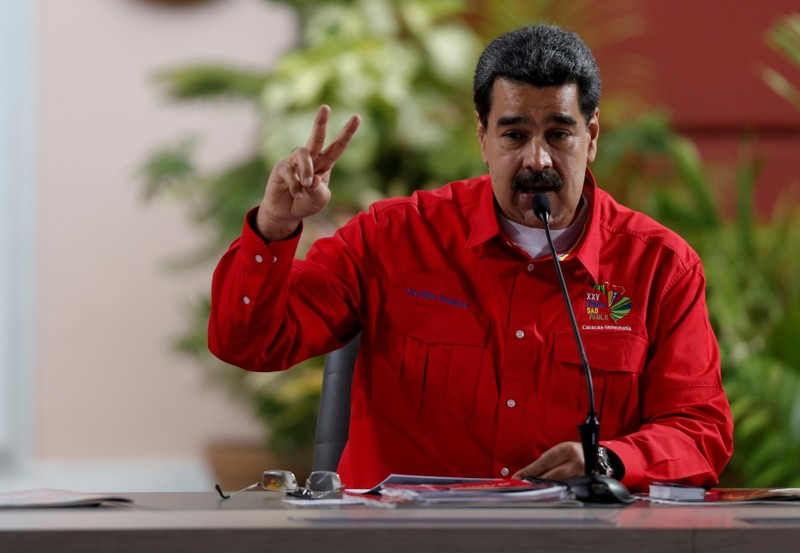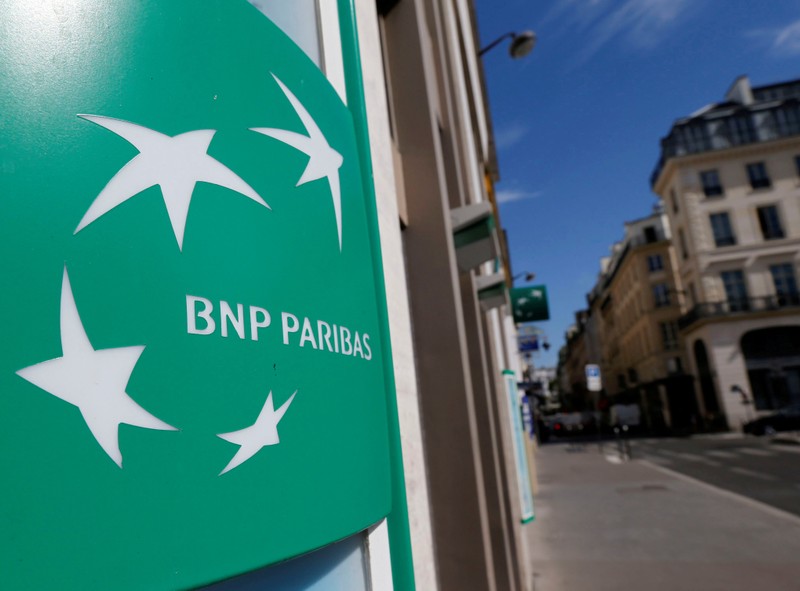
FILE PHOTO: Venezuela’s President Nicolas Maduro speaks at a meeting of the Sao Paulo Forum in Caracas, Venezuela, July 28, 2019. REUTERS/Manaure Quintero/File Photo
August 29, 2019
By Lesley Wroughton
WASHINGTON (Reuters) – Washington’s envoy for Venezuela said on Thursday he was hopeful that the European Union will impose sanctions against Caracas “in the coming months” amid stalled negotiations to resolve the country’s political crisis.
Meanwhile, the United States was examining more sanctions to pressure Venezuelan President Nicolas Maduro to step down, U.S. envoy Elliott Abrams told reporters.
He said European nations were waiting to see the outcome of talks between Venezuela’s government and the opposition.
“If the negotiations fail they will impose sanctions,” Abrams said, adding: “In our view that is probably a mistake because if they were imposing sanctions now… there would be a better chance for negotiations to succeed.”
Abrams was skeptical whether negotiations would proceed.
“The talks are in hiatus,” he said. “They have not met for several weeks and there is no date yet set.”
Maduro called off talks earlier in August in protest against new U.S. sanctions meant to force him from power. The two sides had been meeting in Barbados in talks brokered by Norway.
Washington and most Western nations support Juan Guaido, the chief of the opposition-run National Assembly, who in January invoked the constitution to assume a rival presidency, arguing Maduro’s 2018 re-election was illegitimate.
Maduro calls Guaido a U.S. puppet and retains control of the military and state institutions despite Venezuela’s economic collapse and U.S. sanctions on the state oil company and central bank.
Guaido was trying to determine whether Maduro was serious about a political compromise through negotiations, Abrams said.
“They’ve said since the beginning they don’t intend to let this get drawn out… without any conclusion,” Abrams said, referring to the opposition.
As the United States has stepped up sanctions against Maduro, his government has increasingly relied on Russian oil firm Rosneft for financial support, Abrams said.
Trading sources and Refinitiv Eikon data showed Rosneft became the biggest buyer of Venezuelan crude in July and the first half of August.
Rosneft’s purchases and sales of Venezuelan oil did not violate U.S. sanctions at this time, Abrams said.
Russia and China have called U.S. sanctions against Venezuela unilateral and illegal.
“What you can’t tell from the data is the nature of the financial transactions and we believe Rosneft is buying that oil at a very significant discount from Venezuela and likely selling refined products at a very significant mark up,” said Abrams.
Abrams said Venezuelan oil production was steadily declining, estimating it at roughly 800,000 barrels a day, down from 1.1 million earlier this year.
(Reporting by Lesley Wroughton; Editing by Chizu Nomiyama and Rosalba O’Brien)

